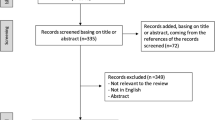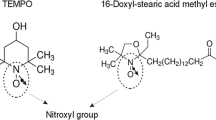Abstract
Severe hyperthermia disrupts the intestinal barrier, allowing bacterial lipopolysaccharides (LPS) to enter the bloodstream. Since the symptoms of heat stroke resemble those of endotoxic shock, there is a common belief that endotoxaemia induces heat stroke. Therefore, we studied the effects of different doses, from moderate to sublethal, of Escherichia coli LPS and an antipyretic (indomethacin) upon the temperature equilibrium of the brain and body of rats exposed to a constant ambient temperature of 38 °C. The animals were then heated until they developed heat stroke, which was identified using a critical thermal maximum (CTM) behavioural test. In separate experiments on defence against endotoxaemia, we compared plasma lipid composition in rats exposed to a sublethal dose of LPS, hyperthermia and heat stroke. Neither LPS nor indomethacin, injected into rats while they were in a hyperthermic steady-state condition of 40–41 °C, influenced their thermal equilibrium. Unexpectedly, moderate doses of LPS significantly elevated the thermal tolerance of rats, such that the mean (SEM) CTM value of body temperature was raised from 42.7 (0.3) °C to 43.1 (0.1) °C (P < 0.05). Indomethacin and huge doses of LPS failed to induce any change in this parameter. The sublethal dose of LPS did not induce mortality in rats subjected to heat stroke. Hyperthermic steady-state conditions and heat stroke alone significantly decreased plasma concentrations of cholesterol, triglyceride and high-density lipoproteins, while the concentrations of low-density lipoproteins increased. A similar pattern of changes was recorded in normothermic rats injected with a sublethal dose of LPS. In conclusion, endotoxaemia in heat-stressed rats induces neither a secondary increase in their core temperature nor a decrease in their ultimate thermal tolerance. Low-density lipoproteins are likely to protect heat-stressed animals against endotoxin-induced death.
Similar content being viewed by others
Author information
Authors and Affiliations
Additional information
Accepted: 21 December 1999
Rights and permissions
About this article
Cite this article
Caputa, M., Dokladny, K. & Kurowicka, B. Endotoxaemia does not limit heat tolerance in rats: the role of plasma lipoproteins. Eur J Appl Physiol 82, 142–150 (2000). https://doi.org/10.1007/s004210050664
Issue Date:
DOI: https://doi.org/10.1007/s004210050664




